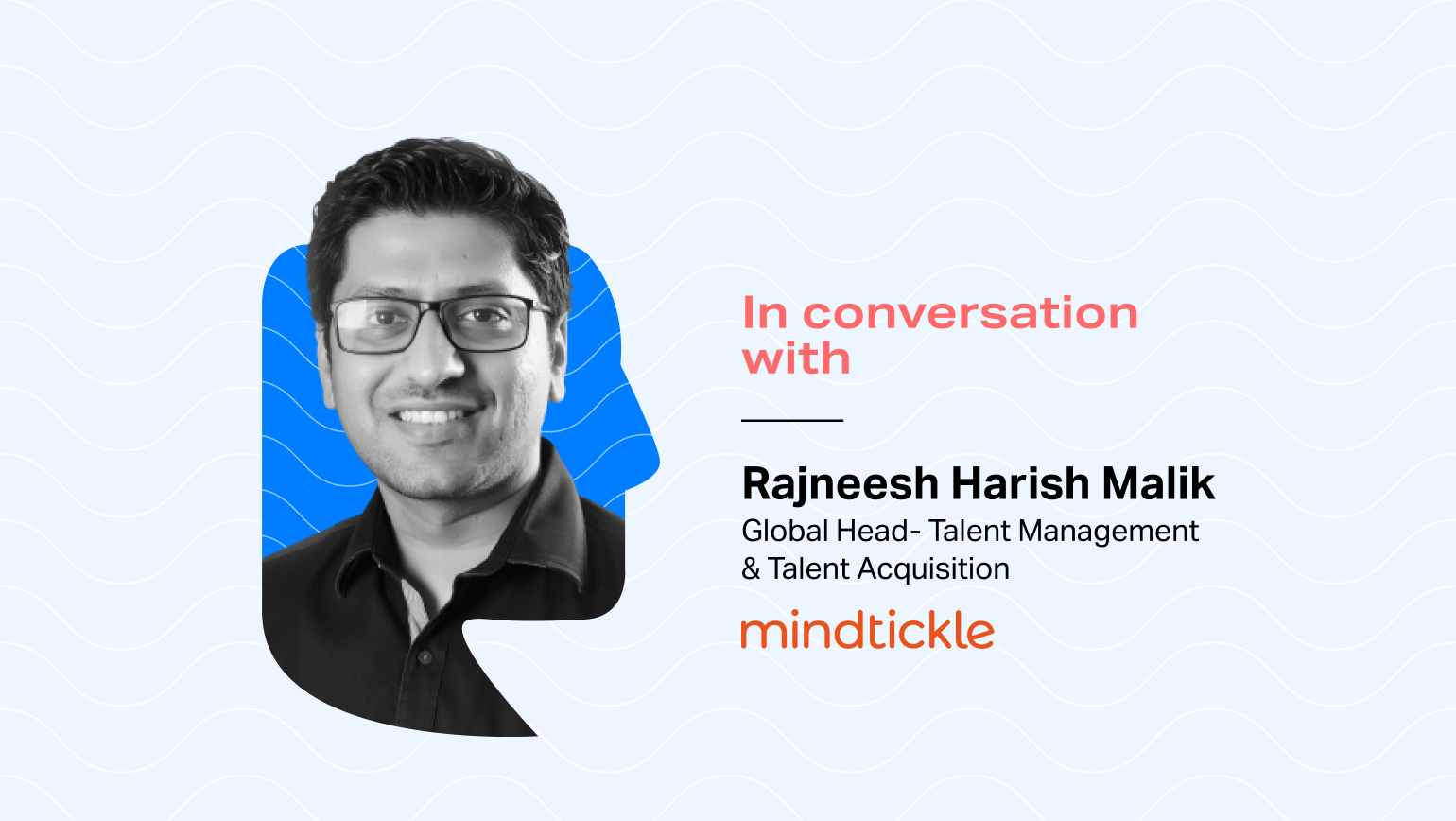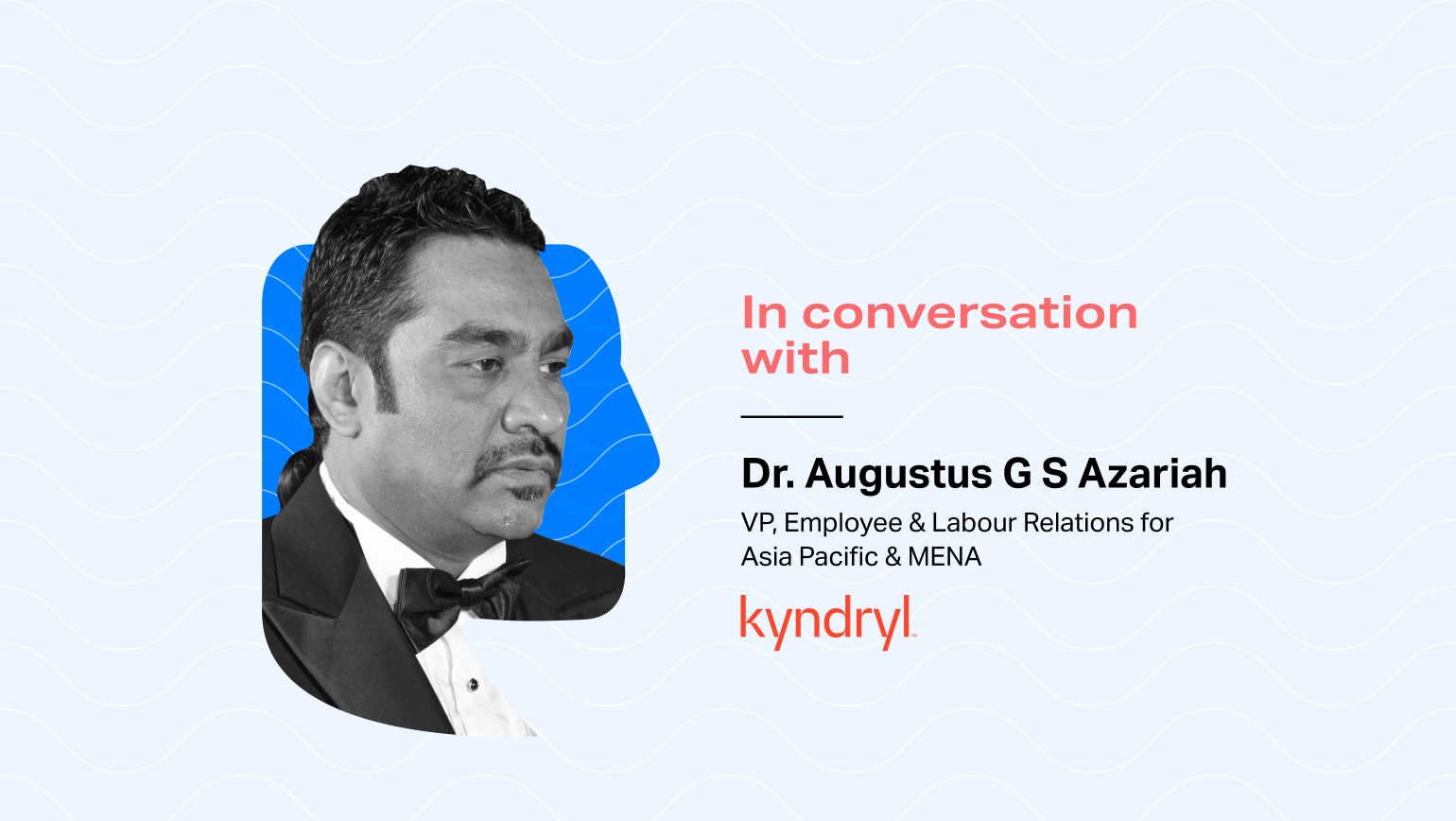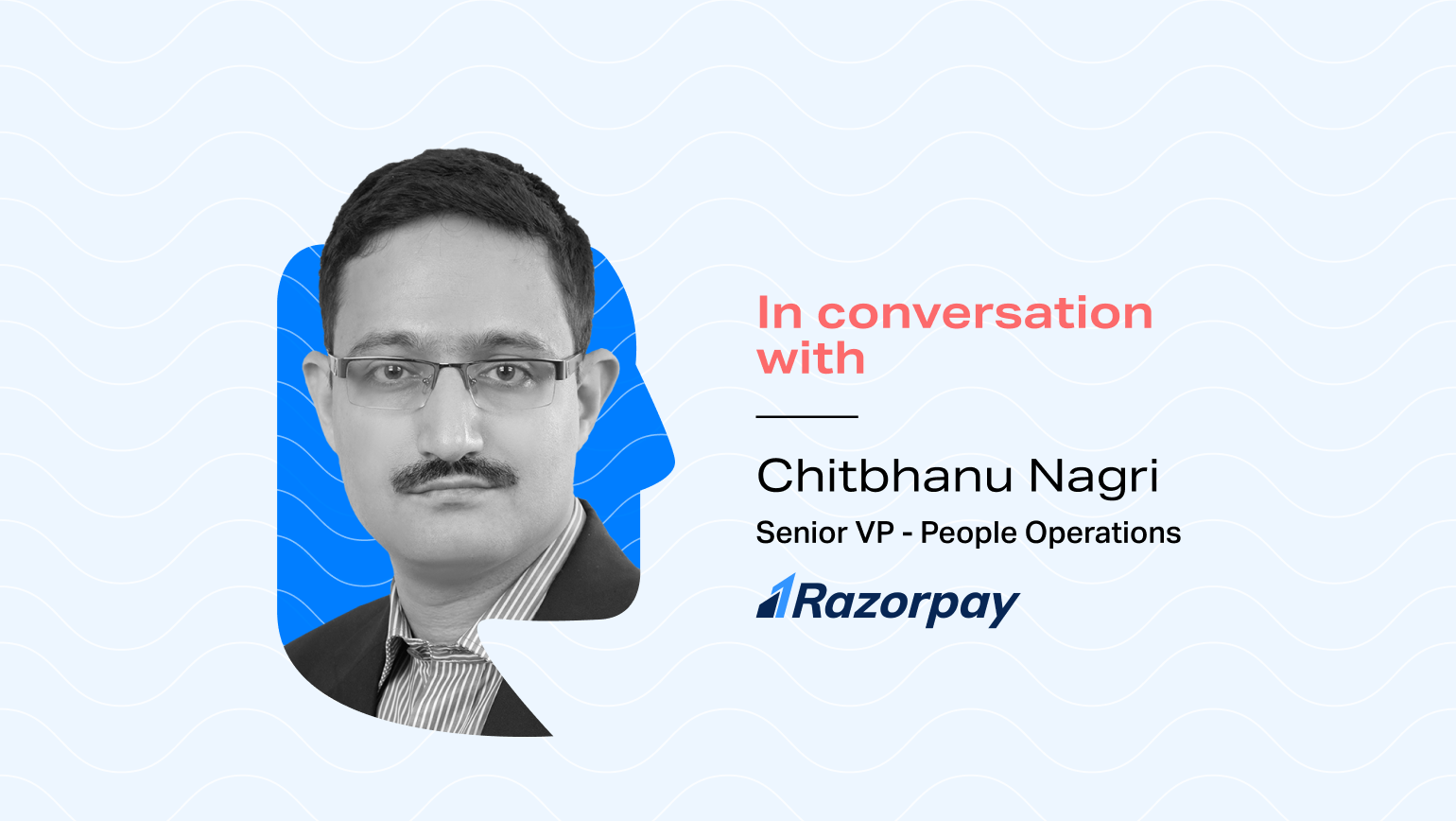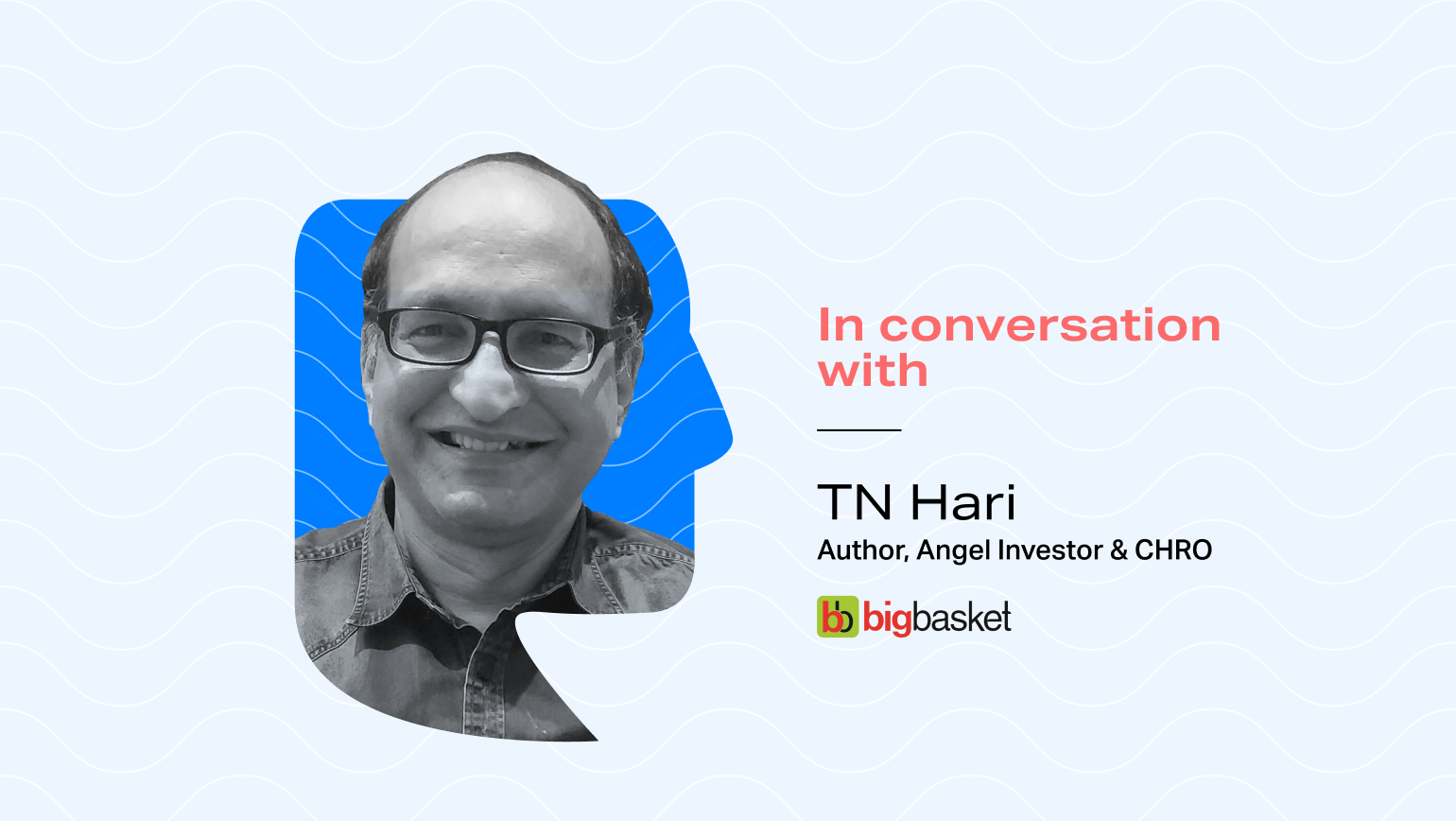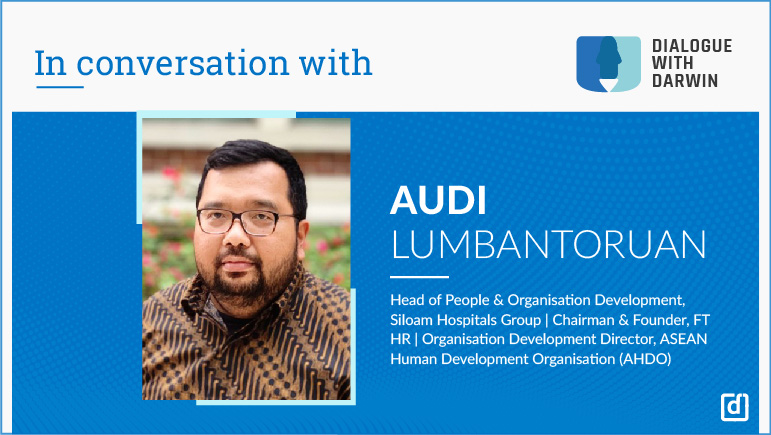 With Priya Chakravarty Sr Director HR, Essar Capital
With Priya Chakravarty Sr Director HR, Essar Capital
Ensuring Inclusivity in the New Normal
Listen to her insights on managing a distributed and diverse workforce in the hybrid work setup, and some interesting HR initiatives at Essar Capital.
Transcript
Gowthami: Hello and welcome everyone to another episode of dialogue. Today we are joined by Priya Chakravarty, Senior Director, HR at Essar Capital. Priya has done her Master's in organizational dynamics from the university of Pennsylvania and brings in more than 20 years of experience in the area of human resources. Having worked across industries like manufacturing, pharma, IT, and rebate.
She is passionate about strengthening organizational culture and people practices. We are super excited to be having a conversation with her about some of the interesting initiatives at Essar Capital.
Welcome Priya. Welcome to the conversation.
Thank you so much Gowthami, really looking forward to this exciting conversation.
Q1: Thank you for being with us and to start off, Essar is a conglomerate with a huge and diverse workforce, tell us how you approach talent development within the group?
Priya: I think in the last few years there has been a lot of consolidation and expansion plans for Essar as such, in fact, you did mention about the fact it is a conglomerate. And in the last two to three years, we have been transitioning from a private equity fund, a kind of model. So, change is the way we operate. Having said that, because of this transition and transformation journey, that weihave kind of embarked on, reskilling and upskilling is at the forefront of everything that we do. I think for us, looking at people, moving into new roles, taking on new opportunities, when you are looking at starting up new ventures is a matter of habit.
Because if you look at Essar and his growth over the 15 years, you always had a backward or forward integration. So, if you have looked at leveraging skillset within the organization to take on new opportunities whenever venturing into new businesses. So that is always at the forefront for us from a talent management point of view.
Gowthami: Interesting Priya, and it seems like disruption is a constant internally, as well as externally today for every organization, irrespective of which field they belong to. It looks such, just moving on, in similar context every organization's top priority today in a changing business landscape is to re-skill and up-skill the talent, right? Or the people. What has your approach been on that front?
Priya: So, like I said, because of the way we are structured and where we are going in terms of transitioning our business to move to more future centric and market centric businesses, one of the big shifts that we have been doing is really looking at, you know, some of the old economy kind of setup or investments that we have had in the past and moving on to more greener businesses.
So, we have taken the opportunity to always, like I said, to leverage the internal resources that we have had. For example, we are trying to move away from the thermal business and get into more renewables and bio. So, we have a huge chunk of people who are already sitting with that kind of experience. They are currently working in the power business, but they are also double hatting and doing roles in terms of research, in terms of working with mentors, with regard to renewables. And how does this space work and attending symposiums seminars, working with the experts from that area to try and understand what this new field is all about. So, that is one of the ways we can give them exposure. There's also a way to experiential learning like the fact that they double hat, there is some sense of experiential learning that they get. There is classroom training that we do, there are mentors, we have some mentoring programs where they shadow the CEO's or people in the leadership positions, so that they get exposure. So, upskilling and reskilling, like I said, is an ongoing thing by virtue of us being a diversified business that lends itself opportunities, So, we use internal resources to do that on a continuous basis.
Gowthami: Interesting, nothing beats learning by doing right, I think the best way to learn, and the opportunities seem to exist to be able to learn and upskill themselves.
And another kind of disruption all of us have gone through in the past two years is of course being turned into a completely hybrid or a remote sort of organization from what we were before, on that front, what have been some critical policy or approach changes that have been made to enable and engage remote or hybrid workforce.
Priya: I think clearly one of the things is that using technology in a big way, right from your hiring processes, right from your onboarding process. I think what we have also tried to do is that, while using technology to keep certain nuances of giving you an experience, if let's say a candidate had to walk into a room or the office and experience the culture of the organization.
Whether it is the artifacts or just employees walking around in your corridor, just observing them. There are a lot of stories that the walls tell you. So, I think we've tried best in terms of enabling technology to create that kind of experience. While technology is how it facilitates, I think, more important to me is how you equip your managers to ensure that they breed very strong trust with your employees or enhance the trust that they already had, because I think if leaders are able to demonstrate that, even when the times are difficult, we can rally the entire set of people to go along with you. Especially considering that you're not going to be face-to-face. The other thing is, I think from a culture point of view, it's always been a culture of people included in the decision-making process. We want to ensure that people don't get left behind. When there is a hybrid model, some of your employees are working from the offices and some of them are working from home, there are instances where you can just walk up or meet in a water cooler moment and decide on certain things about a particular thing. And I think it's about ensuring that those things don't happen. You're always at the back of your mind, know that any meeting cannot be like a physical meeting. Assume zoom that everybody is operating at different locations, and it has to be a planned meeting. So, you ensure that people are included in the decision-making process and do not feel left behind.
Gowthami: Absolutely, I am glad that you have called out and I don’t think it is mentioned as often as the whole need for inclusivity when you're in a hybrid mode, because the distance sometimes literally has an impact on how close you are to the decision. Just moving on to another, you know, similar trend that's been disrupting us, in fact, pushing us to rethink everything that we've been doing in the past, is the war for talent. And today, the battle for talen is like never before, and how are you keeping up with that in terms of making Essar a destination for talent?
Priya: It is about really loading up the sleeves and building that organization. So, in that sense, it's the role that we're able to offer, not only candidates from within the organization, but also who we want to attract from the market. That makes it exciting for people to even look at us and to say that, yes, I'm going to be part of this growth story that Essar is kind of planned for in terms of Essar 2.0. And I think apart from that, the whole fact of how we really looked at ourselves from a more from a fund perspective. That is a different story again, not just from a portfolio company point of view, but how does these whole funds are set up. For us in a way it's like changing the wheels of the bus when the bus is in motion. How many people get an opportunity to be part of that kind of a growth story?
The whole of the one mechanism changes in that context, so that's another thing that we looked at in terms of the rewards and recognition and in terms of roles, looking at learning opportunities and looking at youngsters who can take on really higher responsibilities and drive change.
So, these are some of the things I think, which are, we've been kind of, you know, talking about and getting our own people within the organization to really get excited about it and, you know, communicate it to the extended world. So, I think if you continue to offer them the whole package, in terms of the role, in terms of package, in terms of growth, I think that will help you attract talent.
Gowthami: Great to know Priya. I think repeatedly in our conversations with leaders in the industry, it is good to see that as the competition is toughening, increasingly we are coming back to the importance of the opportunity that we are able to offer to the candidate or the potential employee, while, you know, there are hygiene factors of be it reward or other perks that matter. PLEASE CUT THIS BIT OFF FROM THE TIMELINE.
Segment 2
Moving on and turning it to a very quick lighter note. I would really like to hear zoom fast. Uh, I mean, I'd really like to hear one-word answers on this front. A book or books you would recommend
Priya: Educated is going to be the book that I recommend.
If it is a one word, It is Educated by Tara Westover. I think it's a fascinating book.
Gowthami: A motto you live by
Priya: I kind of chanced upon this point by William Martin and it says, “Make the ordinary come alive and the extra ordinary will take care of itself.” It is such a powerful profound statement. I have tried to internalize that in my everyday life, and I try to enjoy ordinary things that make the day extra ordinary for me, that’s always been my pursuit.
Gowthami: That's fantastic to know Priya. A trait HR leaders must have
Priya: It’s empathy, humility, and from a competence point of view, understanding the business. I guess if we have these three together then you will get a seat at the table for sure.
Gowthami: Some tips to balance work and life in a home office setup
Priya: that's a hard question to answer. I think that in the initial part, we found all of us really hard to do that the lines were blurred and you did not know where to stop and when to stop was, but I guess you really need to stick to your schedule, make sure that you have a time where you're going to wind down and give time to your family, keep the communications open with your manager free and constant. so that they know what you're doing and what you're going to deliver and be on top of those deadlines and timelines. And I think it all creatures of habit, if we can keep at a schedule, you know, in a consistent way, you can work out a good work life balance.
Gowthami: Yeah, a routine is important, but that's what we take away. It was a fantastic conversation; it was great learning some of these insights from you and a lot of exciting things are happening at Essar and thank you so much for sharing some of those insights and initiatives with us. Thank you for spending time.
Priya: It’s been great, and a pleasure talking to you and having this conversation and thank you so much for having me.
Nominate Myself
Nominate Someone Else
Your Sunday Watchlist
 With Rajneesh Malik
With Rajneesh Malik
Global Head- Talent Management & Talent Acquisition, MindTickle
In this interview, he talks about various aspects of organizational culture, hiring, his views on the importance of putting people at the heart of the business, and much more.
 With Augustus Azariah
With Augustus Azariah
Employee & Labor Relations Leader at Kyndryl
Listen to his insights on the ‘Future of Work,’ that much-debated topic – hybrid work, talent management and much more.
 With Chitbhanu Nagri
With Chitbhanu Nagri
Sr VP of People Operations at Razorpay
Listen to his insights on organizational culture, talent retention, and some learnings from his current role at Razorpay.
 With TN Hari
With TN Hari
Author, Angel Investor, CHRO, Big Basket
Listen to his insights on building a sustainable company culture in the hybrid world.


